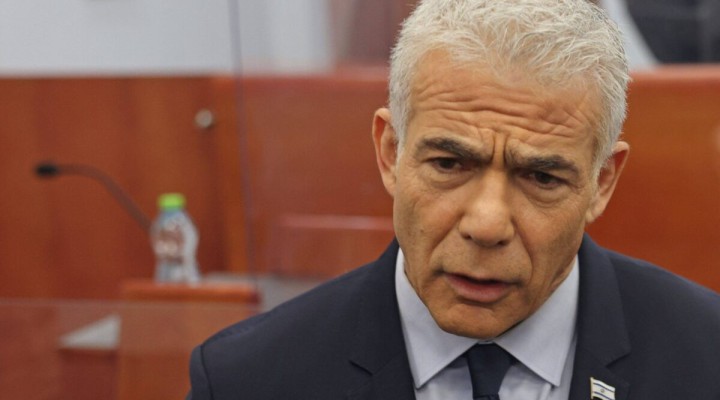What lies behind Israel’s latest advocacy for targeted assassinations?

Three days after Operation Al-Aqsa Flood, Israel announced the targeted assassination of two senior Hamas officials, Jawad Abu Shmala and Zakaria Abu Muammar, who were responsible for finance and internal relations respectively. Yesterday, Israeli opposition leader Yair Lapid announced his support for eliminating the Hamas leadership through targeted assassinations, naming six officials as the targets.
“The State of Israel must not stop and must not let go until we kill six people: Yahya Sinwar, Mohammed Deif, Ismail Haniyeh, Saleh Al-Arouri, Khaled Meshal and Marwan Issa,” Lapid asserted during Yesh Atid’s weekly meeting. “The State of Israel needs to get them, wherever they are. Whether it’s in Gaza or in other countries, it doesn’t matter.”
It is not the first time that Israeli politicians have called for the resumption of targeted assassinations. In June this year, extreme far-right Security Minister Itamar Ben-Gvir also called explicitly for targeted assassinations, deeming them a necessity.
The international community has largely remained silent about Israel’s targeted killings, even when these were carried out in foreign countries. In the current context, Lapid is exposing the fact that Israel’s savage aggression against Gaza is largely a failure in terms of what it set out, it is alleged, to achieve: the destruction of Hamas. The Israeli plan to annihilate Gaza is, of course, not merely tied to Hamas. A contemporary re-enactment of the Nakba horrors – displacing or killing more than two million Palestinians in Gaza in such a brief time frame – amounts to ethnic cleansing. Hamas is merely the excuse that Israel is using to justify its genocide in Gaza.
Palestinian armed struggle against colonial violence is legitimate under international law
If the international community was not so beholden to Israel’s fake security narrative, the framework of the apartheid state’s targeted assassinations would be perceived differently. Israel is the recipient of more than $3 billion per year from the US government to sustain its colonial enterprise on stolen Palestinian land. It was also granted a qualitative military edge by the US, thus ensuring its ability to defeat any possible threat to its security. If the Hamas leadership is eradicated through targeted assassinations, others will assume the leadership positions. While Lapid may pontificate against Hamas, as did other Israeli politicians before him – former Defence Minister Benny Gantz is a case in point – the real issue is that Israel’s security narrative faces a genuine risk of fracturing now, and Israeli politicians are scrambling to keep it on its pedestal.
With such an opportunity, the international community should move from non-binding resolutions to holding Israel accountable for its colonial violence against Palestinians. “Self-defence” against people under occupation has no legal basis in international law. Gaza should not be synonymous with Hamas in political discourse in any case; that is the Israeli colonial narrative which will never admit that the enclave contains a largely refugee population with strong memories of the 1948 Nakba. Targeted assassinations merely confirm the extent to which Israel’s security and self-defence narrative can be manipulated. After enabling the entire world to witness what it is capable of in terms of destruction, the international community should evaluate well its support for Israel, a colonial entity that will stop at nothing to kill in order to save its military supremacy as the self-appointed regional hegemon.
https://www.middleeastmonitor.com/20231031-what-lies-behind-israels-latest-advocacy-for-targeted-assassinations/
 TheAltWorld
TheAltWorld 
0 thoughts on “What lies behind Israel’s latest advocacy for targeted assassinations?”